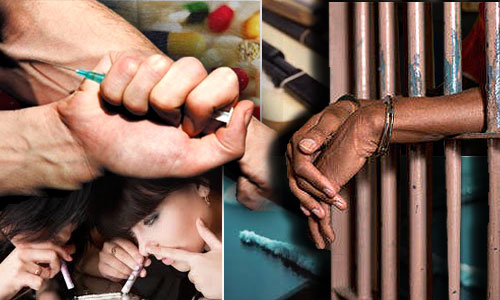Gov't public health approach to illicit drug use laudable
LETTER | We, the undersigned, refer to the recent joint announcement by the Minister of Home Affairs Muhyiddin Yassin and the Minister of Health Dzulkefly Ahmad on the Malaysian government’s intention to decriminalise drug use.
As leaders in public, private, civil society and community organisations in Malaysia, we strongly endorse the announcement that Malaysia will take a public health approach to the problem of drug use and addiction in Malaysia.
Drug addiction must be recognised as a complex chronic relapsing medical condition which requires medical as well as psychosocial support in a non-punitive manner, such as referrals to voluntary treatment and rehabilitation, social re-integration, and education.
Local evidence has shown that treatment of drug use reduces relapse, and allows drug users to return to gainful employment, reconnect back with families and contribute meaningfully to societies.
The press conference by the Minister of Home Affairs and Minister of Health, which announced their support for the decriminalisation of illicit drug use, and for the review and repeal of drug laws that criminalise drug use has come at a critical time - as the present approach of punitive actions on people who use drugs has led to several harmful consequences including severe overcrowding in prisons leading to the problem of tuberculosis and other infectious diseases in these settings.
Criminalisation makes many drug users afraid to ask for medical help for fear of punishment and a criminal record that would negatively impact their ability to get jobs, support themselves, their families, and participate in society.
Furthermore, criminalisation creates a cycle of imprisonment and poverty that leads to increased risk of infections, family breakdowns, and a loss of human capital to Malaysian society.
This historic announcement falls right before the UN International Day Against Drug Abuse and Illicit Trafficking, and the "Support Don’t Punish" campaign, a global campaign to raise awareness of the harms caused by the criminalisation of people who use drugs, and is in line with Malaysia’s continued commitment towards supporting the Sustainable Development Goals (SDGs) which aim to “ensure that no one is left behind”.
As Malaysian organisations in public, private and nonprofit sectors, it is our duty to care.
We Support. Don’t Punish.
The above is endorsed by:
Malaysian Medical Association (MMA)
Women’s Aid Organisation
Academy of Medicine Malaysia
College of Physicians Malaysia
College of Pathologists Malaysia
College of Public Health Malaysia
Universiti of Malaya Faculty of Medicine
College of Radiology
Addiction Medicine Association of Malaysia (Amam)
Pertubuhan Doktor-Doktor Islam Malaysia (Perdim)
Malaysian Aids Council (MAC)
Universiti of Malaya Center of Addiction Sciences (Umcas)
UM Center of Excellence for Research in Aids (Ceria)
Malaysian Alliance for Drug Policy Reform (Reformasi Dadah)
Human Rights Commission of Malaysia (Suhakam)
Malaysian Psychiatric Association (MPA)
Insaf Munri Association of Malaysia (Imam)
Wholistic Initiative for Substance Abuse Education and Research (Wiser)
Jabatan Psikiatri, Universiti Sains Malaysia, Kampus Kesihatan Kubang Kerian Family Medicine Specialists’ Association (FMSA)
Alumni Sekolah Menengah Sultan Ismael
Lee Lam Thye
Maim Kelantan
Malaysian Care
The views expressed here are those of the author/contributor and do not necessarily represent the views of Malaysiakini.
RM12.50 / month
- Unlimited access to award-winning journalism
- Comment and share your opinions on all our articles
- Gift interesting stories to your friends
- Tax deductable
